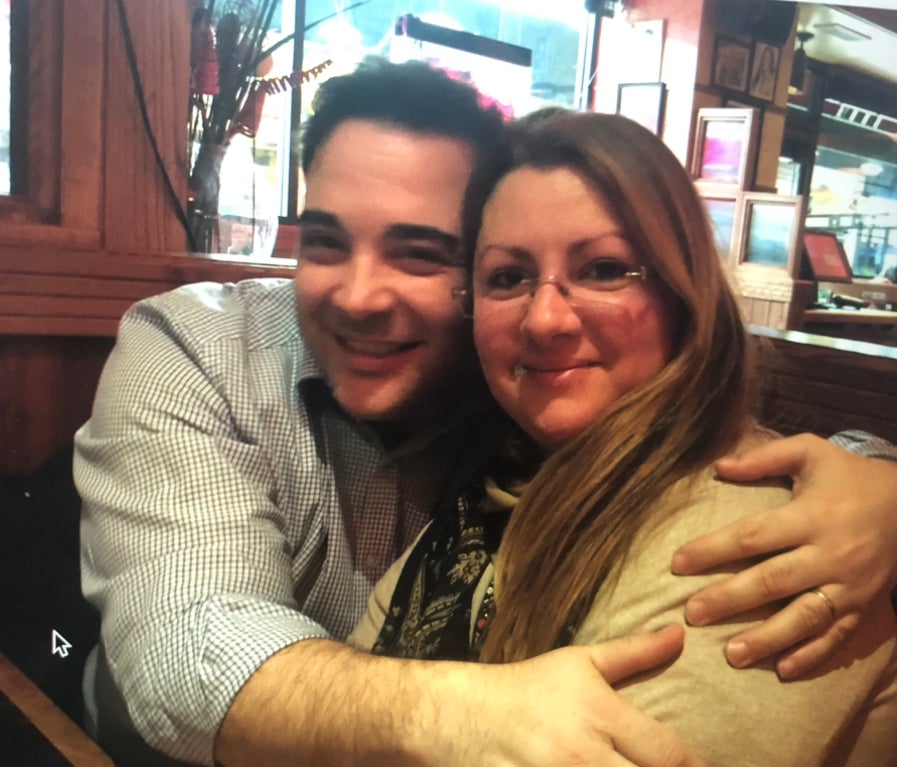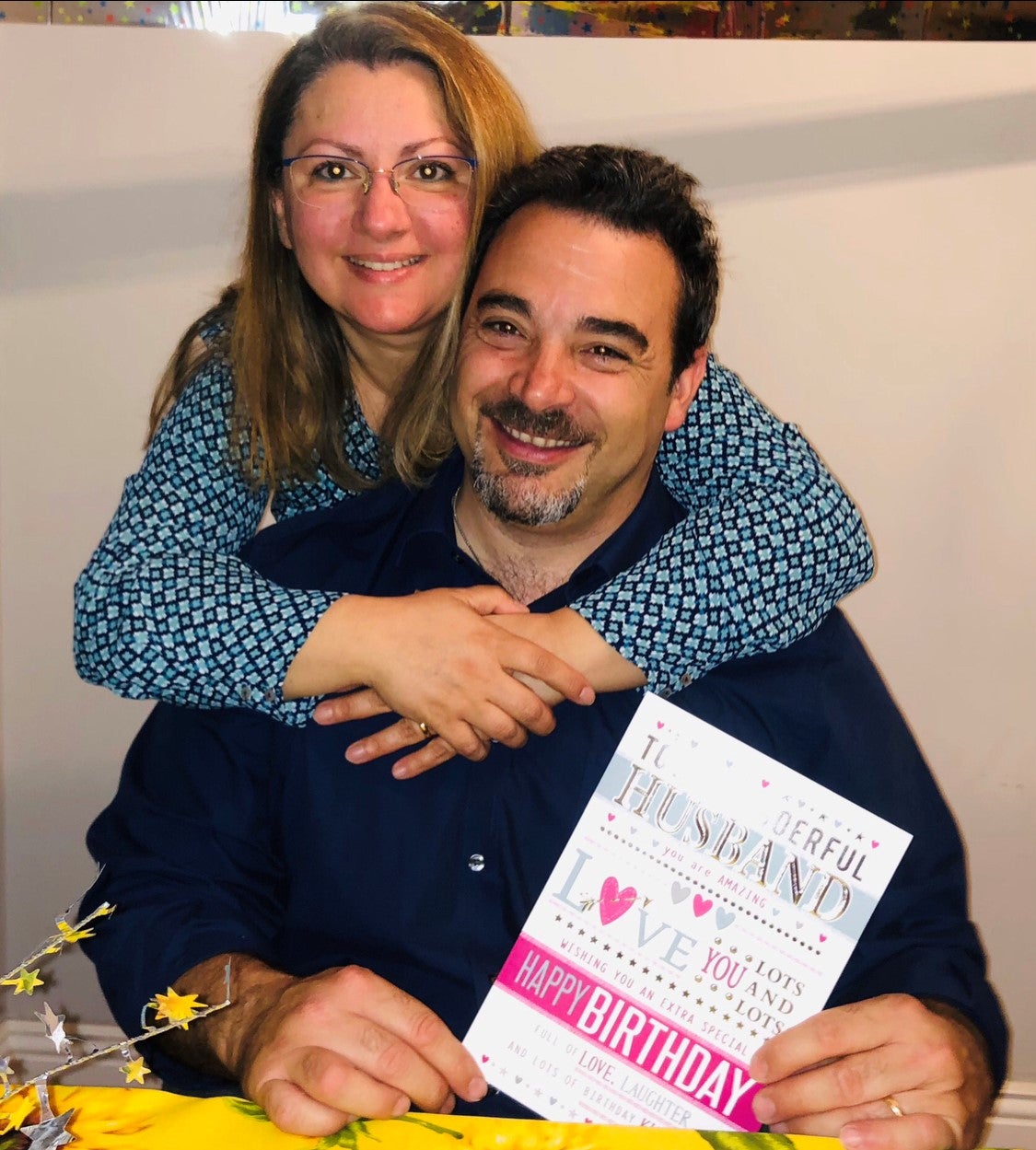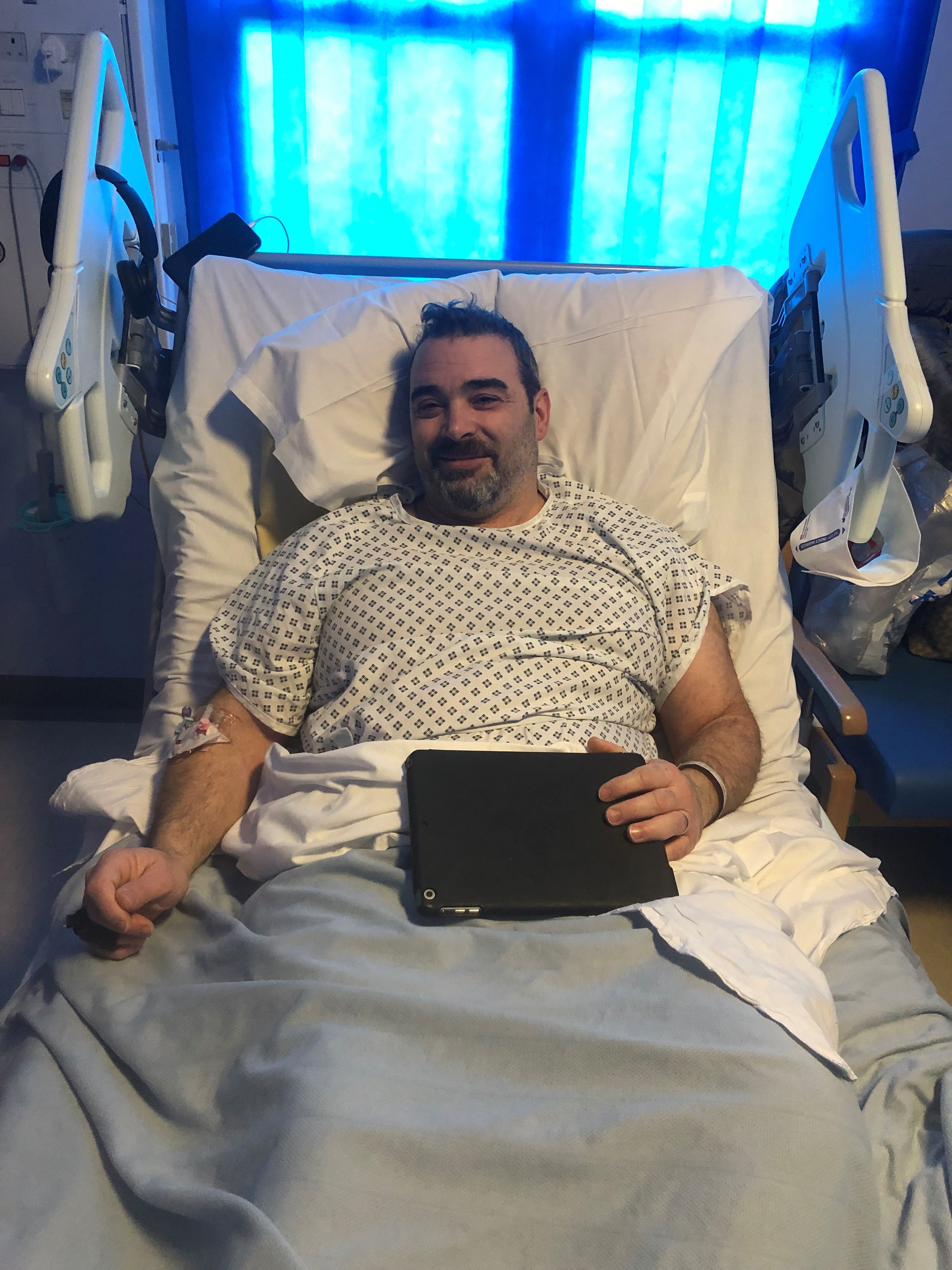Widow left with crippling energy bill after keeping dying husband warm during cancer care
Simona and David Pappalardo’s lives were turned upside down when David was diagnosed with brain cancer and given six months to live

Your support helps us to tell the story
From reproductive rights to climate change to Big Tech, The Independent is on the ground when the story is developing. Whether it's investigating the financials of Elon Musk's pro-Trump PAC or producing our latest documentary, 'The A Word', which shines a light on the American women fighting for reproductive rights, we know how important it is to parse out the facts from the messaging.
At such a critical moment in US history, we need reporters on the ground. Your donation allows us to keep sending journalists to speak to both sides of the story.
The Independent is trusted by Americans across the entire political spectrum. And unlike many other quality news outlets, we choose not to lock Americans out of our reporting and analysis with paywalls. We believe quality journalism should be available to everyone, paid for by those who can afford it.
Your support makes all the difference.A widow who has been left with thousands of pounds of energy debt after her husband’s sudden cancer diagnosis has called for more financial support for terminally ill patients.
Simona Pappalardo, 46, from London, said the couple’s lives were “turned upside down in the space of a few hours” when doctors discovered a mass in her husband David’s brain.
He was diagnosed with stage 4 brain cancer in December 2023, and became partially paralysed. The 47-year-old went through treatment throughout the winter and spring of 2024 and passed away in June.
Simona explained: “It was six months throughout winter, and we were facing the coldest months, and he had to stay alive and stay warm throughout the winter.
“He underwent treatment, radiotherapy and chemotherapy, and as a result was suffering from cold sensitivity. He was constantly cold, especially after treatment. And I do remember him shivering a lot, asking for gloves, a hat and extra socks.
“I was worried from day one and obviously I had to keep the central heating on, and I realised the costs were going up.”

Both Simona and David had to give up their jobs working in photography and signed up for universal credit and personal independence payments respectively. Simona explained that the benefits were not enough to pay for the extra energy costs incurred by making sure David was comfortable in his final months.
She said the heating became “vital” for David when he was ill and she had to keep the house warm to reduce the pain he was in.
Speaking about the change in their financial situation, she told The Independent: “We were literally making it from month to month. I was feeling overwhelmed and alone at some points.
“I need to make significant changes to put David’s needs first. David became bedbound immediately – the same day he was diagnosed, he became paralysed. So he was relying on vital equipment, which was all powered 24 hours a day. He had an inflatable mattress, with an air pump that needed to stay on day and night.
“That was essential to stop David developing bed sores. Charging this vital equipment became our priority. I had to speak to our two kids about saving electricity costs.”

She moved David to a downstairs south-facing room, which was a bit warmer and more accessible.
“Energy is vital for people like my David, for people who are terminally ill to manage their pain level. I contacted my energy provider but they keep offering me management advice; how to reduce my energy use. But I didn’t need that, I needed someone to reduce my bills.
“That was the help they couldn’t offer. The only thing was a £200 discount and an electric blanket.”
Now Simona has been left with an outstanding bill of around £5,000 to the energy company.
She explained that during David’s final months, she would put him to bed and then go upstairs and spend hours trying to search for better energy deals and any grants she might be eligible for.
During his last two months, David was on an oxygen concentrator that needed to be powered all day and night at full power. Simona was told by the contractor who installed the machine that she could get reimbursed for the costs, but after David passed away the company said that Simona’s total refund would be just £13.
A new report by end-of-life charity Marie Curie has estimated that more than 300 people are now dying in poverty every single day in the UK.
Previous research by the charity has found that 93,000 people died in poverty across the UK in 2019. They estimate that that number rose to 111,000 in 2023 – an increase of 19 per cent in four years.
Simona said the government should give fuel support to families with terminally ill loved ones, adding: “The one-off payments are not enough and people need ongoing continuing support, and the reassurance that they don’t have to make it from month to month. They need to know that next month they will be able to get the house warm.
“There is currently no energy help for people with terminal illness. We don’t need advice on using less energy, or debt repayments.”
Dr Sam Royston, executive director of policy at Marie Curie, said: “No one should have to face their final days worrying about money or whether they can afford to heat their home.
“And no matter what way you cut it, by age, gender, ethnicity or location, rates of poverty are higher for people at the end of life than the rest of the population.”
A government spokesperson said: “No one should suffer financial hardship because of a health condition - that’s why special rules are in place to ensure those nearing the end of life can claim the support they deserve in a timely manner.
“Alongside this, we are extending the household support fund, uprating benefits and the state pension, while over one million households are set to be lifted out of fuel poverty through the biggest potential boost to home energy standards in history.”
Join our commenting forum
Join thought-provoking conversations, follow other Independent readers and see their replies
Comments